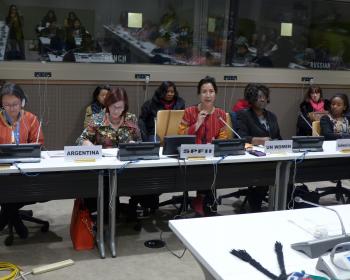
Erika Mayer
Held on May 20, 2015, at the University of Ottawa, Canada, the Symposium on Free, Prior and Informed Consent (FPIC) brought together a diverse array of Indigenous experts and advocates to discuss what FPIC entails, why it is so crucial, and how it can be most effectively implemented.
By Alex Glomset
In April 2015, Cecilia Mérida, the partner of an environmental defender who was arrested and falsely charged and imprisoned in Guatemala testified at the World Bank in Washington, D.C.